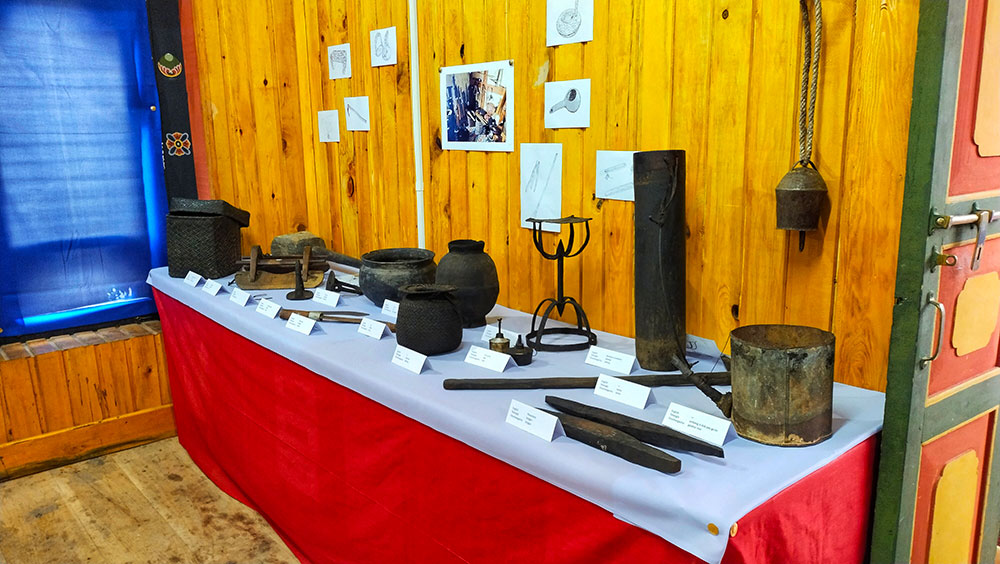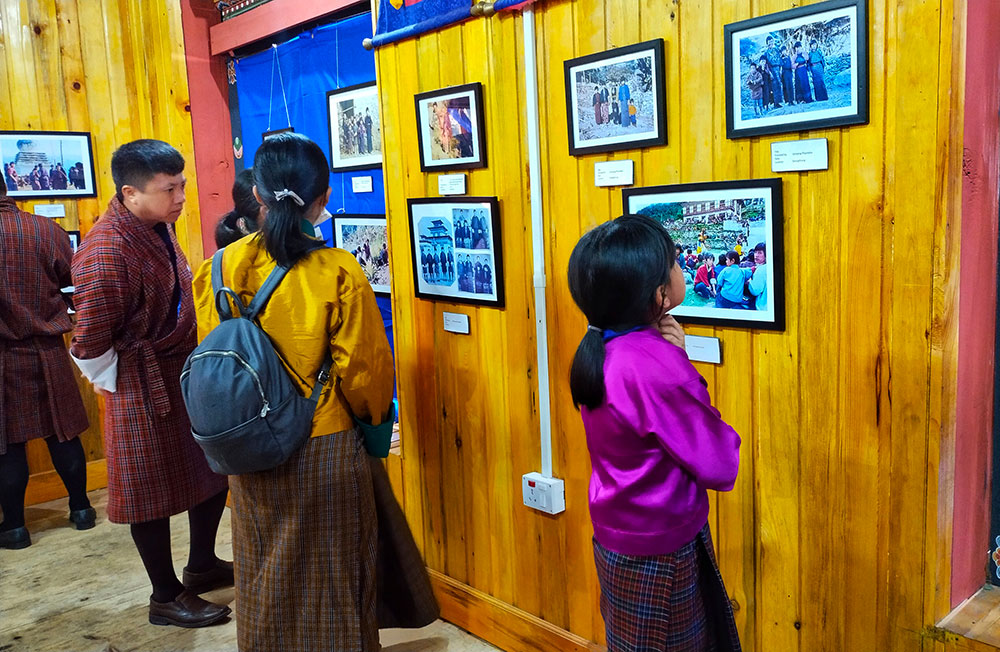Neten Dorji
TRASHIGANG — As the scent of incense permeated the air, visitors were greeted by a room adorned with photographs, elegantly displayed on the white walls of the Photo Exhibition Centre in Bartsham, Trashigang.
The guests eagerly dispersed, immersing themselves in the photographs contributed by the people of Bartsham.
Beneath the captivating images, over 15 everyday objects were tenderly arranged, forming a collection from local farmers. Together, these photographs and objects composed a living traditional photo exhibition, a treasured tradition that stands on the brink of extinction.
Entitled “Memories of Bartsham”, the exhibition in Bartsham seeks to pass on the rich heritage of culture, history, and nature to the next generation.
More than 50 photographs were on display, showcasing the deep-rooted history and vibrant culture of the Bartsham community, including traditional farming tools that were once used for agriculture.
The event was conducted under the support of the JICA Partnership Programme “Human Resources Development towards Community Building by University-Community Engagement”, a collaborative effort between Kyoto University and Sherubtse College.

Visitors learning about the culture and history of Bartsham
Officials said that the exhibition served as a preliminary step towards the establishment of a community gallery or museum in Bartsham Gewog.
“The exhibition focuses on the lives and present experiences of the people of Bartsham,” said an official. “We often fail to recognize the value of culture and history until it vanishes.”
The official emphasised that local culture plays a pivotal role in shaping a sense of identity and fostering community development. “Local identity and solidarity serve as vital tools in addressing local issues in a sustainable manner.”
The collection of over 50 photographs vividly captured the beauty of nature and the essence of Bartsham’s culture. The images showcased the community’s way of life, artistic expression, and the awe-inspiring natural landscapes found within the region.
Attendees, young and old, were seen reflecting on their lifestyles and the progress of their time as they engaged with the exhibition.
“It was a great pleasure to witness the diverse aspects of our community under one roof,” said Tendin Zangmo. “The photographs have the power to transport us back to how Bartsham was in the 1990s.”
Yezin Youden, a student, expressed her excitement at seeing the displayed farming tools for the first time.
“Through this photo exhibition, I was able to gain insight into the lifestyle of our ancestors and the history of Bartsham,” she said. “I learned the names of many farming tools used in both agricultural and household settings.”
She highlighted that the younger generation could use the exhibition to gain a deeper understanding of their predecessors’ way of life.
Dhendup Yangchen, another student of Bartsham Primary School, expressed gratitude for the opportunity to explore the history of different communities.
“The exhibition reminds us of the rich culture and diversity found in Bartsham valley, from the past to the present. It opens a window for younger generations like me to witness how utilitarian objects were created and used in daily life,” she said.
She also emphasised how the exhibition facilitated learning about the past and fostering a connection with previous generations’ lifestyles.
An official acknowledged that many of these decades-old everyday objects are now rare finds.
“They communicate the essence of our culture, emphasising its distinct qualities and uniqueness,” the official said.
Kelzang Dawa, the gup, expressed hope that the photo exhibition would attract future tourists.
“Most of these tools are disappearing from the village as farmers increasingly adopt modern farming methods,” he said. “We have plans to establish a museum where we can preserve these tools and educate the younger generation about the rich history and culture of Bartsham.”
As Bartsham strives to preserve its cultural legacy, the photo exhibition stands as a testament to the importance of cherishing traditions and passing them on to future generations.


